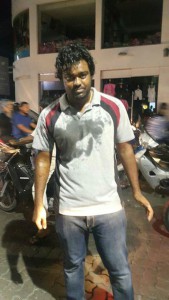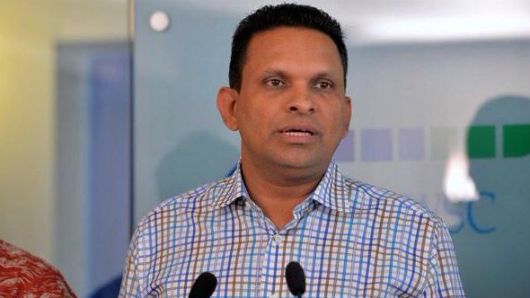Former President Mohamed Nasheed’s terrorism trial “made a mockery” of the Maldives Constitution, and violated the country’s international human rights obligations, the UN special rapporteur on independence of judges and lawyers has said.
In a damning statement issued on Thursday, Gabriela Knaul highlighted several irregularities in the opposition leader’s rushed trial, and said: “The speed of the proceedings combined with the lack of fairness in the procedures lead me to believe the outcome of the trial may have been pre-determined.”
Nasheed was sentenced to 13 years in jail on March 13 after the Criminal Court found him guilty of “forcefully abducting” Criminal Court Chief Judge Abdulla Mohamed in January 2012.
The surprise trial began one day after Nasheed was arrested on February 22, and was completed in just 11 short hearings over 19 days.
“The series of due process violations that were reported to me since Mr. Nasheed’s arrest on 22 February is simply unacceptable in any democratic society,” Knaul said.
Warning of a “seriously deteriorating situation in the independence of the justice system,” the expert urged the Maldives to guarantee that Nasheed’s appeal would respect the most stringent fair trial and due processes.
The Maldivian authorities must allow the public, including international observers who were arbitrarily denied access to the Criminal Court, to attend appeal hearings, she said.
Nasheed’s lawyers, however, have already raised concern over alleged attempts by the Criminal Court to block the former president from launching an appeal.
With one week having passed since the verdict was issued, the Criminal Court failed to release any relevant trial documents until yesterday (March 19), which lawyers say are necessary for Nasheed to meet the ten day appeal deadline provided in new regulations enacted by the Supreme Court.
Selective justice
The Maldives’ decision to try Nasheed on terrorism, while his predecessor Maumoon Abdul Gayoom has not had to answer for any of the serious human rights violations documented during his term is “troubling for a country whose constitution enshrines the independence and impartiality of the justice system as a prerequisite for democracy and the rule of law,” Knaul also said.
She urged the Maldives to consider the recommendations she had put forth in a 2013 report, including revising the composition of the judicial watchdog body the Judicial Services Commission, proper investigation of judges’ misconduct, enforcing the judges’ code of conduct and increasing the judiciary’s financial and human resources.
“The delicate issue of accountability for past human rights violations also needs to be addressed,” she noted at the time.
Meanwhile, the UN High Commissioner for Human Rights Zeid Ra’ad Al Hussein on Wednesday raised similar concerns as Knaul over Nasheed’s trial, including the Criminal Court having denied Nasheed adequate time to prepare defence and a refusal to call defence witnesses.
The experts have also expressed concern over the Criminal Court’s decision not to wait until Nasheed sought new legal representation when his lawyers resigned half-way through the trial.
Prosecutor General Muhthaz Muhsin and two judges of the three-member bench providing witness statements during a 2012 investigation into Judge Abdulla’s arrest amounted to conflict of interest, both Knaul and Zeid have said
“Clearly no one should be above the law, and the trial of a former Head of State would be a major challenge for any government. But in a polarised context, and given the long-standing serious concerns about the independence and politicisation of the judiciary in the Maldives, this case should have been handled with much greater care and transparency,” Zeid said on Wednesday.
Related to this story:
UN human rights chief expresses strong concern over “hasty and apparently unfair” Nasheed trial
Former President Nasheed found guilty of terrorism, sentenced to 13 years in prison
US, EU, and UK concerned over lack of due process in Nasheed trial
Respect Criminal Court verdict, says President Yameen
“This is not a court of law. This is injustice,” Nasheed tells the Criminal Court
Judge Abdulla suspected of involvement in “contract killing,” says Nasheed
A justice system in crisis: UN Special Rapporteur’s report



